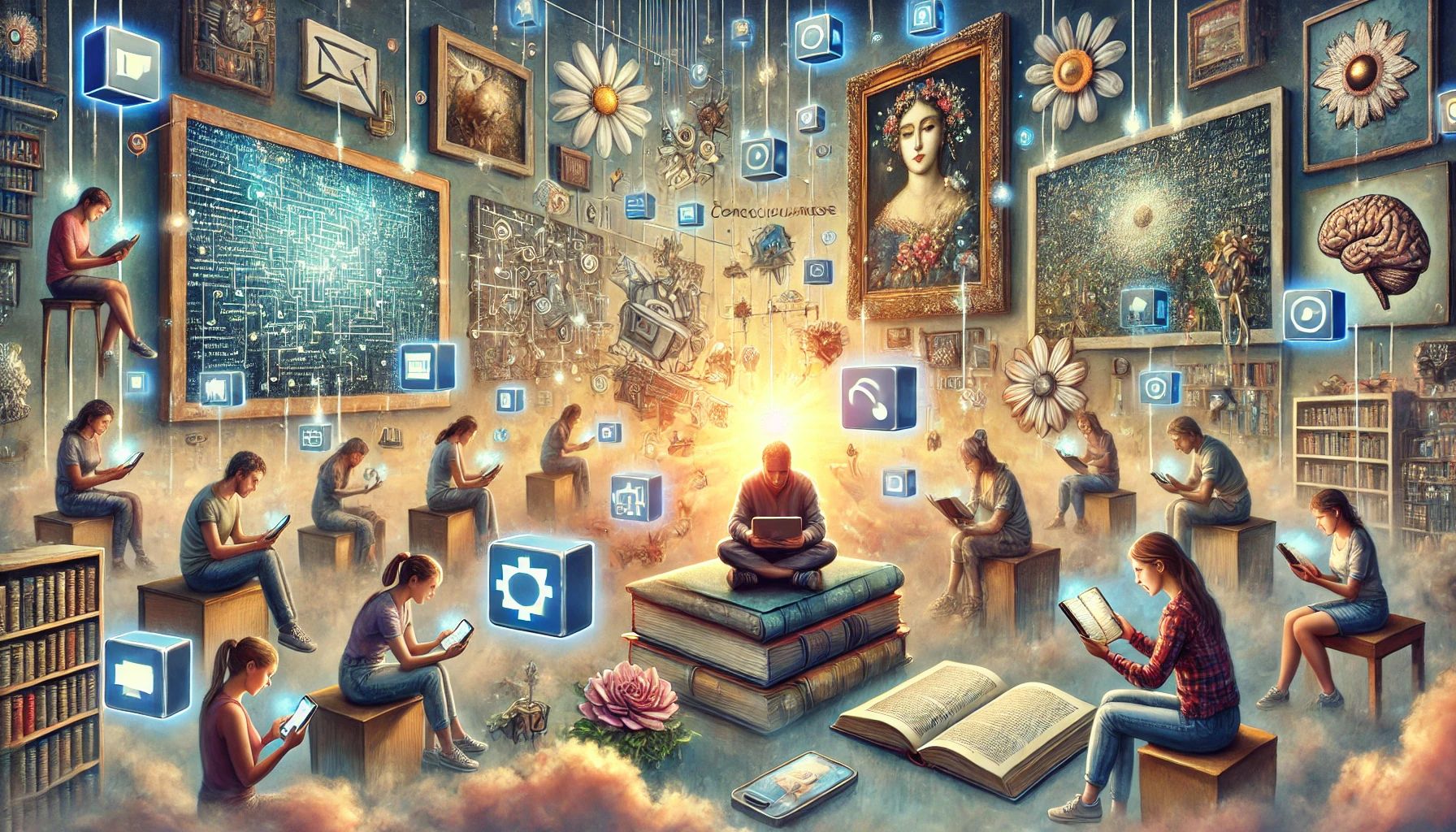
With the advent of cutting-edge technologies, the promise of abundant free time seemed within reach, yet paradoxically, our personal time continues to dwindle. What was once a futuristic dream is now an everyday reality, where humanity finds itself immersed in an incessant deluge of fragmented information. This torrent of data, presented in bite-sized portions—news snippets, memes, and quick-fix entertainment—has shaped a generation with a clip-like consciousness.
Gone are the days when individuals immersed themselves in voluminous tomes or contemplated the complexities of classic cinema. Today, attention spans are catered to with quick, explosive blockbusters and internet memes. This shift from depth to brevity reflects a society increasingly drawn to visual stimuli over introspective thought. The ability to analyze, ponder cause and effect, and deeply engage with complex ideas has waned in favor of instantaneous gratification.
Technological progress, while ostensibly offering freedom and choice, paradoxically enslaves us to a cycle of consumption. Our minds, bombarded by a kaleidoscope of images from screens large and small, are steered towards passive consumption rather than active intellectual engagement. The result is not the promised liberation of thought but a constriction—a narrowing of the mind into a superficial state.
Once, children delved into literary adventures, their imaginations stirred by the works of Twain, London, and Stevenson. These tales sparked curiosity, prompted reflection, and inspired empathy. Today, the plethora of easily accessible information has rendered such deep dives unnecessary. The demand for intellect, imagination, and critical thinking diminishes as the preference shifts towards easily digestible content.
Art, once a doorway to profound emotional and intellectual exploration, now risks being reduced to mere background noise. The intricate beauty of masterpieces requires patience and contemplation, qualities increasingly rare in a world craving instant gratification.
In this landscape, tragedies are reduced to headlines, easily scrolled past amid advertisements and ephemeral distractions. The profound becomes trivial, as we are conditioned to treat every event—no matter how significant or tragic—as just another fleeting clip.
The challenge lies in resisting this trend. To reclaim our autonomy and intellectual depth, we must cultivate habits that nurture the mind—reading, face-to-face conversations, travel, and communion with nature. These endeavors expand our consciousness beyond the superficial and restore a sense of connection to the profound rhythms of life.
In essence, life beckons us to live fully, to resist becoming mere fragments in a vast, disjointed clip. As we navigate the digital age, let us strive to preserve the richness of human experience and safeguard the sanctity of our individual minds against the pervasive influence of clip-like consciousness.


